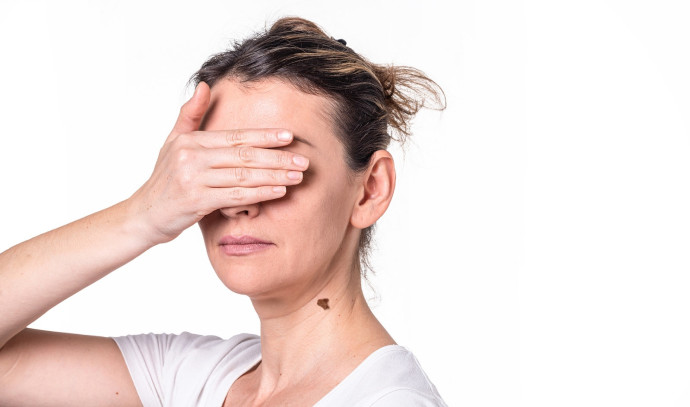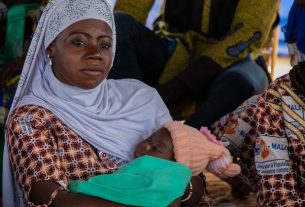Hundreds of clinics of all four health funds across Israel will make it possible to schedule a free appointment for a mole check on the occasion of Skin Cancer Awareness Week, which will be held from Monday, June 12 to Sunday, June 18.
It was initiated by the Israel Cancer Association (ICA) in collaboration with Clalit Health Services, Maccabi Healthcare Services, Meuhedet Health Maintenance Organization, and Leumit Health Care Services.
The ICA has been organizing Skin Cancer Awareness Week for four decades to increase the number of cases in which it is prevented or, if diagnosed, detected early. Everyone can be examined at no cost by dermatologists and plastic surgeons, who want to save lives.
How many Israelis are diagnosed with skin cancer?
According to ICA, last year some 2,000 women and men were diagnosed with malignant melanoma of the skin. About 60% are men.
According to the Health Ministry, in 2019, a total of 1,818 new patients were diagnosed, compared to 1,798 six years ago and 1,634 Israelis a decade ago. A total of 5,649 Israelis were recovering from invasive malignant melanoma and 3,456 people recovering from localized melanoma in 2019. The ICA said that today, there are some 10,000 Israelis who are recovering from invasive or localized melanoma
Focused melanoma is an early-stage tumor that has not yet gone beyond the epidermal layer, while invasive melanoma is a tumor that has gone beyond the epidermal layer and has the potential to spread in the human body. Early detection of the tumor allows the highest chances of remission.
According to data from the World Health Organization (WHO), in 2020 there were some 325,000 new cases of melanoma diagnosed in the world — with the highest rate reported in Australia, followed by New Zealand because of its thin, protective ozone layer in the sky. In this ranking, Israel was in 22nd place out of 30 countries with the highest melanoma rates in the world.
ICA director-general Moshe Bar Haim said that “every day, about five Israelis are diagnosed with melanoma, but thanks to our joint annual promotions with the health funds and our efforts to raise awareness throughout the year, over 90% of those diagnosed with cutaneous melanoma are identified at a very early stage. Along with the dramatic importance of early diagnosis, which results in a high cure rate, it is also essential to prevent skin cancer in advance. I call on the public, men and women in Israel, to observe controlled exposure to the sun. Being smart in the sun is a life-saving message for adults as well and not only for children.”
Dr. Marina Landau – a Maccabi Health Services dermatologist at Shamir Medical Center in Tzrifin and a consultant to the ICA on skin cancer – added that “the correct use of sunscreens can reduce the damage caused by uncontrolled exposure to solar radiation and especially the dangers of developing sunburn, skin cancer and premature aging of the skin. It is recommended to use products with SPF 30 or higher, with broad-spectrum protection. But it is important to remember that exposure to the sun should be avoided as much as possible even if a sunscreen is applied.”
The ICA’s activities next week will be accompanied by a campaign in the media and social networks under the title “Don’t ignore; go get checked!” Its aim is to encourage the public to access a free examination, especially for those who have a suspicious spot or change in the skin.
The ICA runs a melanoma and skin cancer forum that allows patients and their family members to ask questions and receive professional answers from skin cancer experts. The forum is managed voluntarily by Prof. Jacob Schachter, deputy director of the oncology unit and director of the Ella Institute for the Treatment and Research of Melanoma and Skin Cancer at the Sheba Medical Center at Tel Hashomer, and a member of the ICA’s “Update Committee on Skin Cancer,” together with Dr. Felix Pavlotsky of Sheba’s dermatology department, who is also a consultant to the ICA on skin cancer. The entrance to the forum is at the following link: https://www.cancer.org.il/forums/40.aspx.
Many celebrities in the world have revealed the story of their battle with skin cancer in recent years. American media personality Khloe Kardashian said that a spot on her face turned out to be melanoma and that a few years before that she found suspicious moles on her chest and back. The previous biopsy revealed that the mole on her chest was benign but the mole on the back was found to be cancerous, and she underwent surgery.
Australian actor Hugh Jackman, who has been struggling with skin cancer in recent years, speaks openly in every interview about his illness, regularly uploads photos from the treatments to Instagram and calls on everyone to get checked.
Among others, Scottish actor Ewan McGregor was also diagnosed with melanoma. In 2008, he caused a stir when he removed a birthmark from his forehead, which led to speculations that he had undergone a cosmetic procedure. It later turned out that he had undergone the removal of several suspicious lesions, and one of them was skin cancer.
Caitlyn Jenner, the American media personality and former Olympic gold medal-winning decathlete, also underwent facial surgery in recent years to remove melanoma at an early stage and uploaded videos to social networks to describe the process.
Can drinking alcohol increase one’s risk of skin cancer?
A new European study published in the International Journal of Cancer has shown that drinking a lot of alcohol increases the risk of skin and other types of cancer, especially among men. The researchers looked at the alcohol consumption of 363,310 adults from 10 different European countries who had been recruited for the study between 1992 and 2000 and followed up for an average of 15 years. During the follow-up period, 14,037 cases of skin cancer were registered among the study participants, of which 2,457 were cases of malignant melanoma.
The analysis of the data revealed that in men, there is a relationship between the average level of lifelong alcohol consumption and the risk of skin cancer.
High consumption of alcoholic beverages increased the risk of melanoma by 47%, compared to low average alcohol consumption. Drinking a large amount of wine at the time of recruitment for the study increased the risk of less-deadly basal cell skin cancer by 25%.
In women, the relationship between alcohol consumption and skin cancer was less significant, although it was found that drinking a lot of wine during the recruitment phase for the study and during life, increases their risk of getting BCC-type skin cancer by about 12%; drinking beer was not found to be linked with the risk of skin cancer in men or women.



